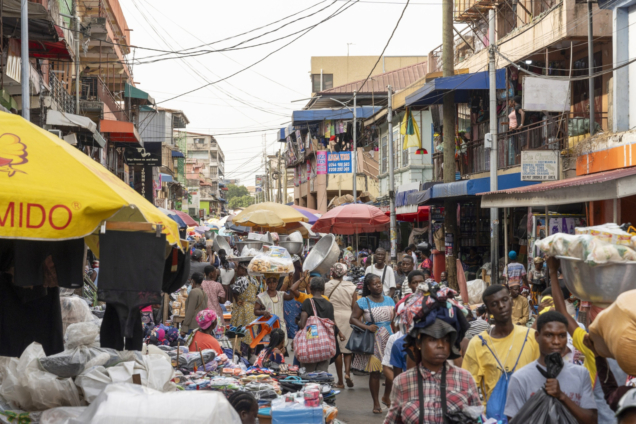Despite a notable increase in per capita income over recent years, widespread inequality persists in Ghana, according to the Institute of Statistical, Social and Economic Research (ISSER).
This revelation comes from ISSER’s 2024 Mid-Year Budget Review, titled "A Critical Assessment of the 2024 Mid-Year Budget by ISSER."
By June 2024, inflation had decreased to 22.8%, a significant drop from its peak of 54.6% in December 2022.
Although this reduction is attributed to tight monetary policies and fiscal consolidation efforts by the government, inflation remains high compared to 12.6% in December 2021.
The review indicates that while month-on-month inflation rates fluctuated in Q1 2024, consistent disinflation was recorded in Q2 2024.
Food inflation, averaging about 26%, continues to drive overall inflation, necessitating policies targeting supply-side factors.
ISSER stresses the importance of addressing the commodities driving inflation to achieve the end-period inflation target of 15%.
Recommendations include improving the road network in Ghana's food basket areas and reducing foreign exchange rates to lower transportation and fuel costs.
These measures could help reduce food and non-food inflation to single digits, making the medium-term inflation target of 8% ± 2% by 2025 plausible.
While per capita income has risen from USD 1,979 in 2016 to USD 2,365 in 2023, ISSER notes that widespread inequality remains a pressing issue.
Rising food prices and living costs have significantly impacted the working class, presenting inherent livelihood challenges.
"We recommend accelerating economic growth while implementing better policies to redistribute income," ISSER states in the review.
The institute underscores the need for a balanced approach that promotes economic growth and ensures equitable distribution of income to mitigate the adverse effects of inequality on Ghana's working class.
The ISSER report highlights that despite the positive economic indicators, the benefits of growth are not evenly distributed.
Addressing the underlying factors contributing to inflation and inequality is essential for creating a more inclusive and resilient economy.
Latest Stories
-
Sale of diplomatic properties in Nigeria, Zambia by previous administration cancelled – Ablakwa
13 minutes -
Maternal and newborn health crisis worsens as late referrals surge
54 minutes -
Farmer fined GH₵4,800 for stealing 5 sacks of ginger
58 minutes -
Playback: The Law discussed Article 146 – prima facie
1 hour -
Appeal Court judge slams weak enforcement of Land Act as land disputes dominate court cases
2 hours -
Police arrest two suspects for robbery at Ashaiman
2 hours -
Fire ravages apartments, stores at Akyem Kwabeng
2 hours -
Tano Anwia’s concession owner teams up with Forestry Commission to combat galamsey
3 hours -
Gov’t allocates GH₵490m to Education Ministry
4 hours -
Tragedy: Nigerian boxer dies after Ghana Pro League bout
4 hours -
Opoku-Agyemang undergoes treatment at UGMC, set to receive further care abroad
7 hours -
The mystery of Bomigo: an island of divine laws, sacred goats, and unwavering traditions
9 hours -
Government’s GH₵ 292.4 million mistake: why free sanitary pads are the problem, not the solution
9 hours -
Crystal Palace beat Fulham to book FA Cup semi-final spot
18 hours -
Forest beat Brighton on penalties to reach FA Cup semi-final
18 hours

